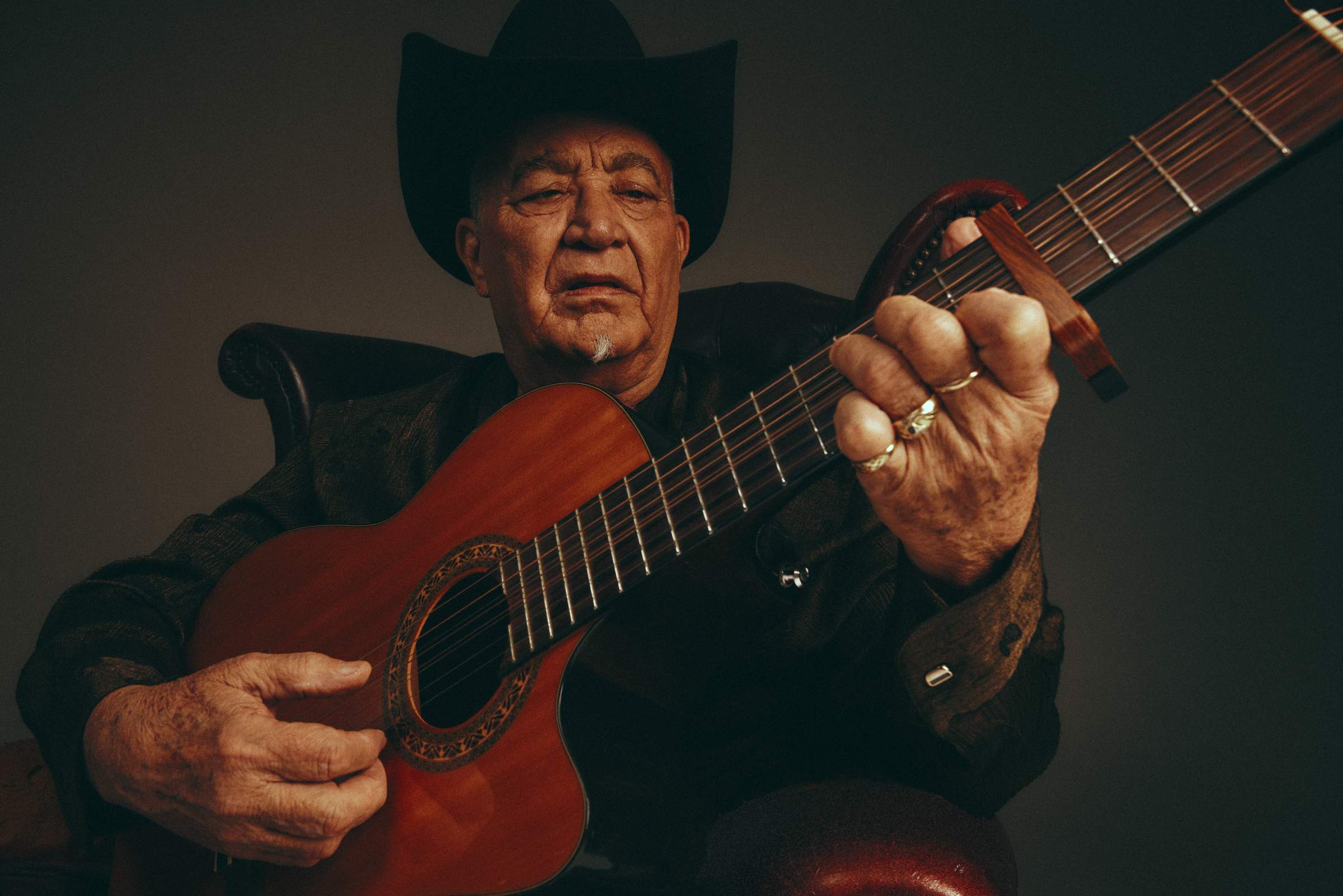Eliades Ochoa | Interview | New Album, ‘Guajiro’
Eliades Ochoa’s album ‘Guajiro’ is a deeply reflective work that showcases his rich life experiences through traditional Cuban music blended with contemporary elements.
The album was released in May 2023 via BMG and features collaborations with notable artists such as Rubén Blades, Joan As Police Woman, and Charlie Musselwhite, highlighting Ochoa’s versatility and dedication to evolving his musical style. With this album, Ochoa not only delves into the marrow of his traditional Cuban roots but also audaciously flirts with the fringes of contemporary sounds. It’s like watching a grand old master of the tres guitar, a seasoned veteran from the Buena Vista Social Club era, break free from the chains of nostalgia to redefine his legacy. The man plays by ear, channeling melodies straight from the abyss of his imagination, and adjusts his performance with the grace of a sorcerer fine-tuning his spells. As the Guajiro Tour rolls into the U.S., it promises to be more than just a concert series; it’s a reckoning with the past and a bold statement about the future of Cuban music.
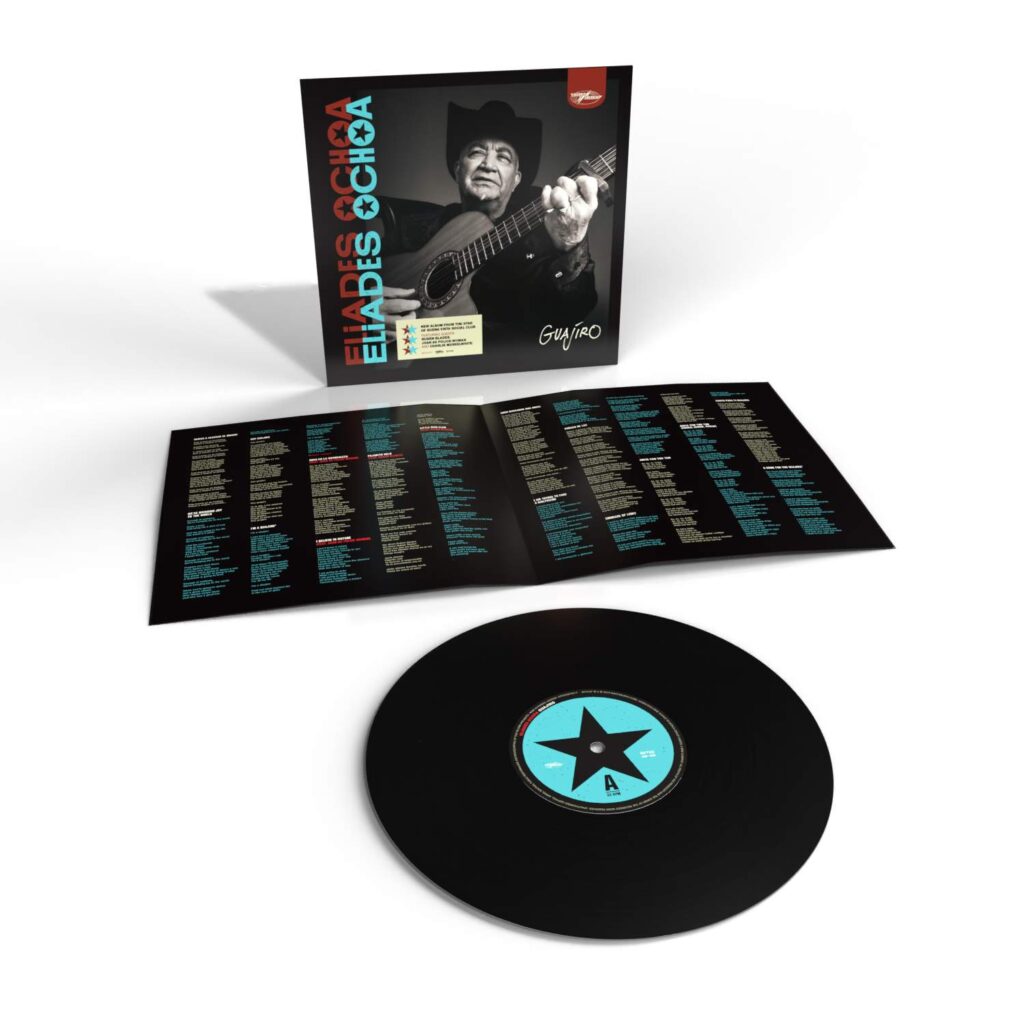
“My albums serve as a blank canvas on which I create music”
Your new album ‘Guajiro’ has been described as deeply reflective of your life experiences. Can you share some specific events or memories that inspired the songs on this album?
Eliades Ochoa: The album ‘Guajiro’ tells a part of my story. Each song, even the ones I didn’t write, serves a specific purpose. For instance, ‘Soy Guajiro’ mentions that I am a “Guajiro” (peasant) who was born in the mountains of Santiago de Cuba but now lives in the city. It emphasizes that I will never forget my humble beginnings in the mountains where I come from.
‘Creo en la Naturaleza’ (I Believe in Nature) with Joan As Police Woman means that I want to live my life to the fullest, and I hope that nature grants me many more years to live.
‘West’ with Charlie Musselwhite is about the horse my dad gave me when I was a child and my passion for Western movies.
For those unfamiliar with the term, how would you describe guajiro music? What are its main characteristics, and how does it reflect the culture of rural Cuba?
Guajiro music is the music played by peasants during the “guateques,” the traditional parties they celebrate. We embrace the rhythms of our traditional Cuban music, such as son, guaracha, changüí, kiriba, punto Cubano, among others.
Your new album ‘Guajiro’ targets a younger audience while preserving traditional Cuban music. What was your vision for this album, and how did you balance contemporary elements with traditional sounds?
I have experience collaborating with artists from various music genres. While I always aim to maintain the essence of traditional Cuban music, I also strive to evolve. My albums serve as a blank canvas on which I create music to connect with my audience. With ‘Guajiro,’ we aimed to appeal to a younger audience that is increasingly attending our shows.
Your album features collaborations with Rubén Blades, Joan As Police Woman, and Charlie Musselwhite. How did these collaborations come about, and what was it like working with such diverse artists?
It was an incredible opportunity. I have known Charlie and Rubén for many years; they are amazing artists and good friends. I discovered Joan through the label, and when we heard her voice and the way she plays the violin, we knew that she would be a great match for the album.
The song ‘Creo En La Naturaleza’ with Joan As Police Woman has a unique backstory. How did the natural beauty of your surroundings inspire this piece, and what was it like working with Joan?
I wrote the song during the pandemic. I was in isolation, and I couldn’t see my family and friends or play for my audience. It was tough for me and for many people as well. With this song, I am asking nature for more years to live and enjoy the simple things in life that bring me joy. I honestly don’t need as much to be happy.
I haven’t met Joan in person, but I hope to one day. She is incredibly talented. I admire her renditions of the bolero and her skillful violin playing, which infuse the music with warmth and beauty.
Your collaboration with Charlie Musselwhite on ‘West’ brings a bluesy feel to the album. How did this song come about, and what was it like blending Cuban music with blues elements?
I met Charlie through Virgin Records Spain a long time ago, and we’ve been friends ever since. We met during the pandemic in Miami; I played the song for him for the first time, and he liked it. I’m a fan of Charlie’s music, and I knew his harmonica would add an enigmatic sensation to the song.
Demetrio Muñiz produced ‘Guajiro.’ How did his vision align with yours, and what unique elements did he bring to the album?
I have known Demetrio for many years. He is a good friend who understands my musical vision. We work together with mutual respect. While I have produced many of my albums, I appreciate that he adds his own touch and expertise. Demetrio has a robust knowledge of traditional Cuban music.
“My music is an expression of my traditions, origins, and personal story”
Many of your songs carry profound, country-tinged wisdom. What central themes or messages do you hope listeners take away from ‘Guajiro?’
I would like people to appreciate the music I create. My music is an expression of my traditions, origins, and personal story. I did not attend a music school; instead, I learned music by listening to my parents and the “trovadores,” guitar players from Santiago de Cuba. I take pride in this, and it’s what I aim to convey to my audience.
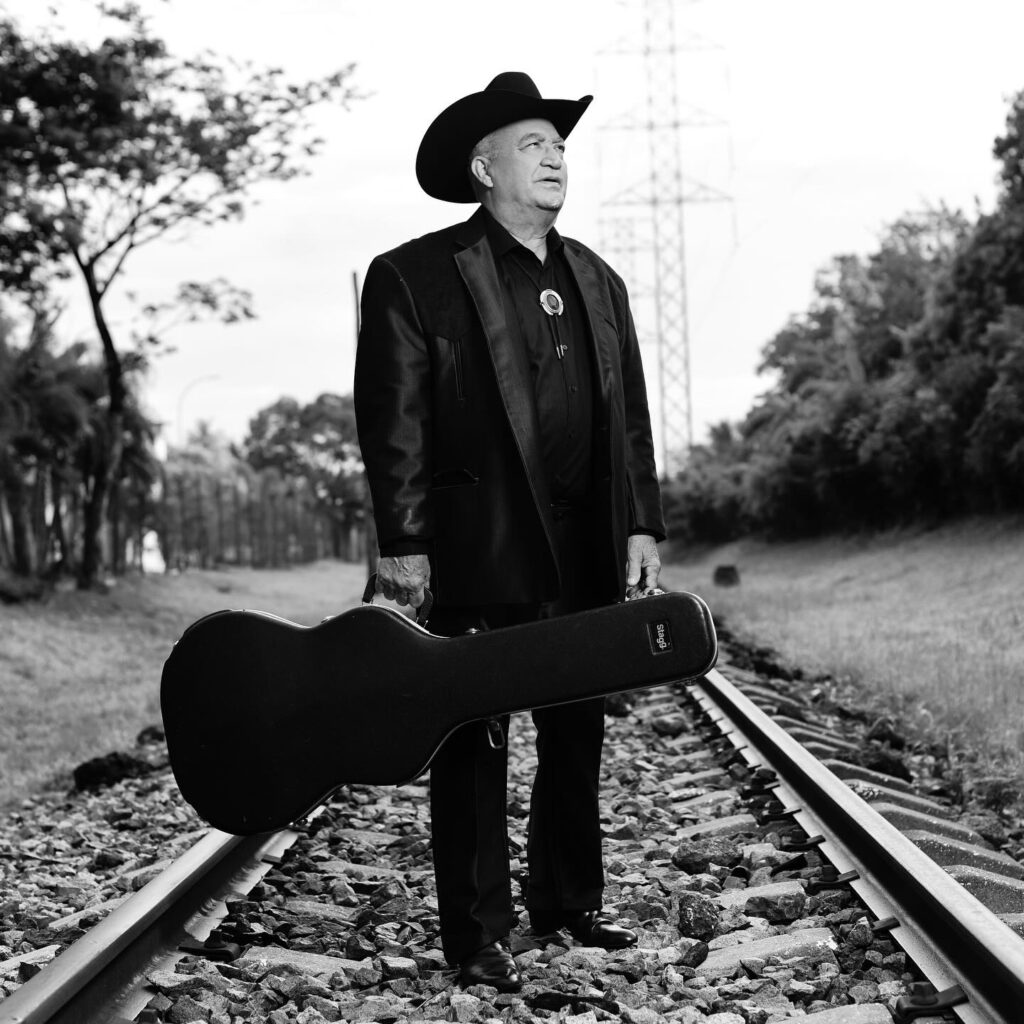
What was the most memorable moment for you during the recent European leg of the tour? Have you noticed any differences in how your music is received in Europe compared to the United States?
People enjoy our music, and that makes me happy. I’m currently on the second tour of Guajiro in Europe, and it is going very well. I must admit, Europe has received our music with open arms for many years, even without an album on the market. I will always be grateful for it.
With the Guajiro Tour now arriving in the United States, what are your expectations and hopes for the upcoming shows?
The Guajiro Tour in the US was amazing. We had multiple sold-out shows, which exceeded my expectations. It was the first time that I toured 10 shows in the US with just my band, and it was incredible. The audience knew our songs, including the ones from Guajiro. I enjoyed it a lot! We’ll be back this summer for two shows in New York.
Your recent albums ‘Guajiro’ and ‘Vamos A Bailar Un Son’ have distinct qualities. How would you compare the creative processes, themes, and musical styles of these two albums? What are the key differences and similarities?
They are both great albums, and they showcase the essence of traditional Cuban music. I must say ‘Vamos A Bailar Un Son’ is more traditional, while ‘Guajiro’ is a little bit more contemporary. I have the same creative process; I like to sit and think about what I want for each album. They are my legacy, and I take the creative process very seriously.
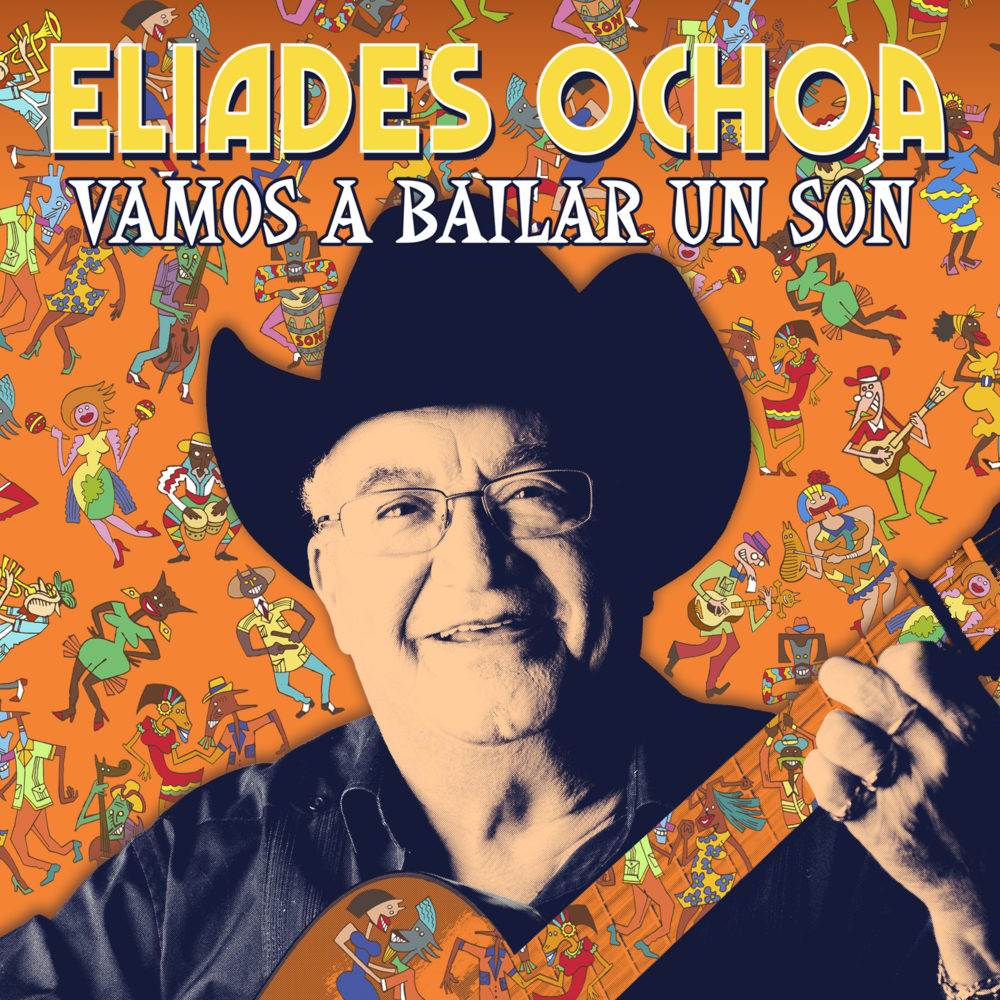
You’ve mentioned that more and more young people are connecting with your music. What do you think is drawing younger audiences to your work, and how do you feel about this intergenerational appeal?
We are loving it! The younger audience transmits a lot of energy. Some of them grew up listening to Buena Vista, others have known our music for years, and some are discovering it for the first time. Every year, we see this audience growing, so they like what they are hearing. It is really hard to resist our Son Cubano. Everybody dances to it.
Buena Vista Social Club’s success brought Cuban music to a global audience. How did being part of this iconic project impact your career and personal life, and what are some of your most cherished memories from that time?
When this project came about, I was already touring and playing some of the songs that ended up on the Buena Vista album, but I have to say that Buena Vista changed my life. I will always treasure the time I spent with the musicians, some of them dear friends, in the studio, playing forgotten songs and bringing them back to life.
“Buena Vista Social Club opened the doors to Cuban music worldwide”
Buena Vista Social Club has left an enduring legacy in world music. In what ways do you think the project has influenced contemporary Cuban music and artists, and how do you see its legacy continuing in the future?
Buena Vista Social Club opened the doors to Cuban music worldwide, and it was an unprecedented success. I will always be grateful for the opportunity. I will continue playing songs from Buena Vista in my shows, and I hope more people continue with the legacy of traditional Cuban music, which is the soul of Buena Vista Social Club, after all.
Working with such a diverse group of legendary musicians in Buena Vista Social Club must have been incredible. Can you share any particular moments of collaboration or interaction with your fellow musicians that left a lasting impression on you?
Compay was like a father figure to me. I was the first musician to record ‘Chan Chan.’ He became part of my group, Cuarteto Patria, and we toured together in the 80s. The time we spent at the studio recording Buena Vista was memorable. I was the only one at the studio he allowed to tune his “armónico.”
Your proficiency with the tres guitar is widely admired. Could you discuss the key elements of your playing technique and how you have developed your unique style over the years?
I am grateful for it. I don’t use a specific technique; I play by ear. I prefer to play the melodies I have in my head on my guitar and then adjust my playing to match what I’m feeling.
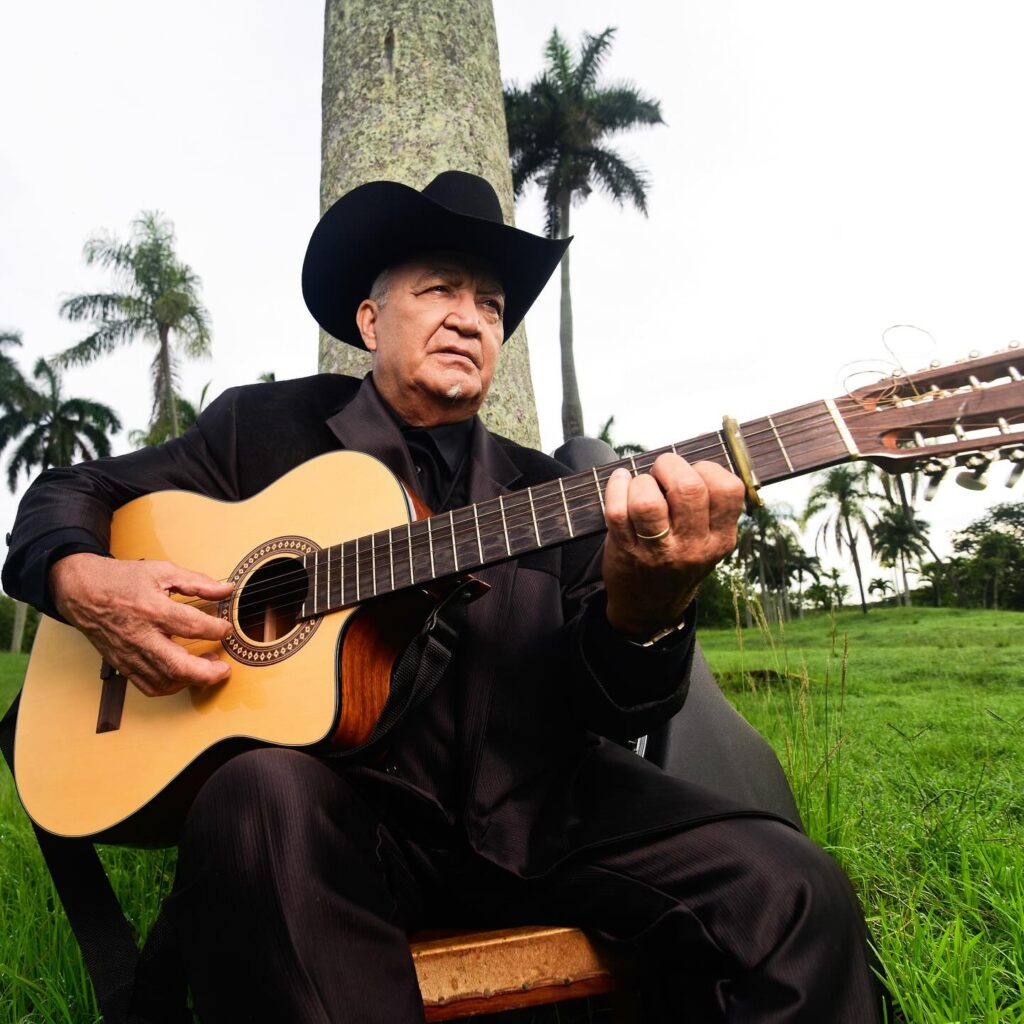
Your style has been described as blending traditional Cuban music with elements of country and blues. From a technical perspective, how do you incorporate these diverse influences into your playing? Are there particular scales, rhythms, or methods that you find essential in achieving this fusion?
It comes naturally to me; it’s part of my essence. I listen to all types of music, especially traditional music. I’ve been exposed to blues and country music for many years through Western movies, and I believe they may have had a profound impact on my life.
Klemen Breznikar
Eliades Ochoa Official Website / Facebook / Instagram / Twitter / YouTube

